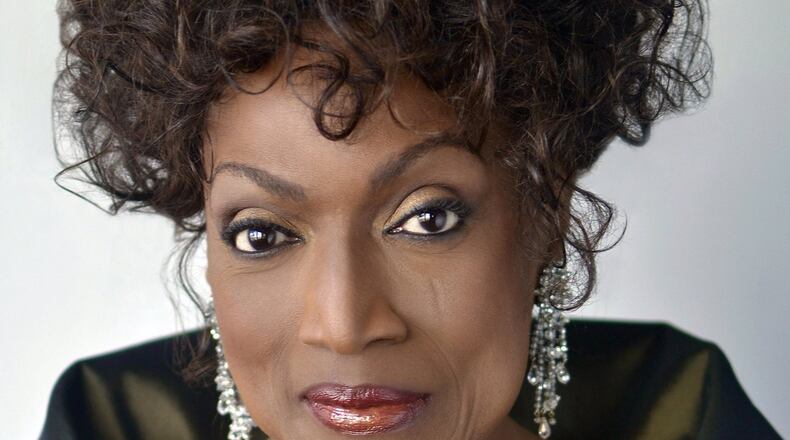Classical music audiences were presented with a wide range of programming, from adventurous avant-garde fare to crowd-pleasing Romantic favorites this year. No matter the repertory or the ensemble, the city continues to produce engaging, excellent performances from its top ensembles, providing a wealth of outstanding choices to even the most discerning classical listener. Here are a few highlights from 2016:
ASO fires all cylinders
Under the direction of conductors Robert Spano, Donald Runnicles and Joseph Young, the Atlanta Symphony Orchestra presented a thrilling year of music, making it extremely difficult to select only a few great performances. In November, concertmaster David Coucheron performed Sergei Prokofiev’s Violin Concerto No. 1; nine months earlier, he took the lead in Brahms’ Violin Concerto in D Major. Both were superb performances of well-trodden compositions. Among the year’s guest artists, violinist Augustin Hadelich gave an beautiful, emotionally draining performance of Jean Sibelius’ Violin Concerto.
Other highlights include the symphony’s performance of Mahler’s “Song of the Earth” with guest artists mezzo-soprano Kelley O’Connor and tenor Russell Thomas led by Runnicles, and the ASO Chorus’ premiere of “Zohar” by Jonathan Leshnoff in Atlanta and at Carnegie Hall in New York. The recording was released on Nov. 18.
One of the most poignant performances by the ASO this year was a performance in May of Edward Elgar’s Nimrod from “Enigma Variations,” which was dedicated to late bassist Jane Little.
Atlanta Music Festival
With November’s Atlanta Music Festival, Dwight Andrews continued his quest to bring more visibility to African-Americans composing and performing classical music. As in previous iterations, the festival featured performances from the Spelman and Morehouse glee clubs, but this year the closing gala concert also featured a performance from soprano Jessye Norman and a rousing performance of “He’s Got the Whole World in His Hands” with pianist Damien Sneed.
Chamber music highlights
This fall, Bent Frequency continued to undertake ambitious musical endeavors with the recent premiere of Michael Pisaro’s “A Wave and Waves,” a performance en plein air featuring 100 percussionists given tasks that included dropping pebbles and seeds onto gongs and metal plates, creating a serene convergence of seemingly dissonant sounds. Earlier in the year, the BF Duo Project presented a concert of world premieres after taking the program on a tour of New England.
In the finale to its fifth season, Chamber Cartel, led by artistic director and percussionist Caleb Herron, presented a concert with guest conductor Michael Lewanski of Ensemble Dal Niente. The avant-garde performance featured “Mouthpiece: Segment of the 4th Letter” by Erin Gee and Ann Clear’s “unable to create an offscreen world.”
In September, the Atlanta Chamber Players presented the world premiere of Motion Studies by Mark Buller, the most recent winner of the group’s Rapido! competition. Two other rapidly composed works joined the new piece – Albert Roussel’s Trio for Flute, Viola and Cello, and Beethoven’s “Archduke” Trio, which was composed in 20 days.
“Silent Night”
The Atlanta Opera presented several memorable productions in 2016, including lovely performances of Charles Gounod’s classic “Romeo and Juliet” at the Cobb Energy Centre in May, but it was the November production of contemporary composer Kevin Puts’ Pulitzer Prize-winning work “Silent Night” that truly saw the company staking out new territory. Performed on Erhard Rom’s stark but effective three-level set, the show beautifully dramatized the brief and fragile Christmas truce of World War I. Mark Campbell’s libretto wisely brought the focus onto small, individual lives caught up in the monumental events, and soprano Ava Pine and tenor David Blalock sounded especially fine as the opera’s lead couple. Puts’ score — with its enormous variations from booming explosions and heartfelt anthems of the battlefield to intimate duets and quiet a cappella hymns sung during ceasefire — was masterfully brought to life by the Atlanta Opera’s first female conductor Nicole Paiement. All in all, the production revealed a company unafraid to move in bold new directions, and with more than enough talent on hand to take a captivated audience along with it into the 21st century.
— Andrew Alexander contributed to this article
About the Author
Keep Reading
The Latest
Featured


